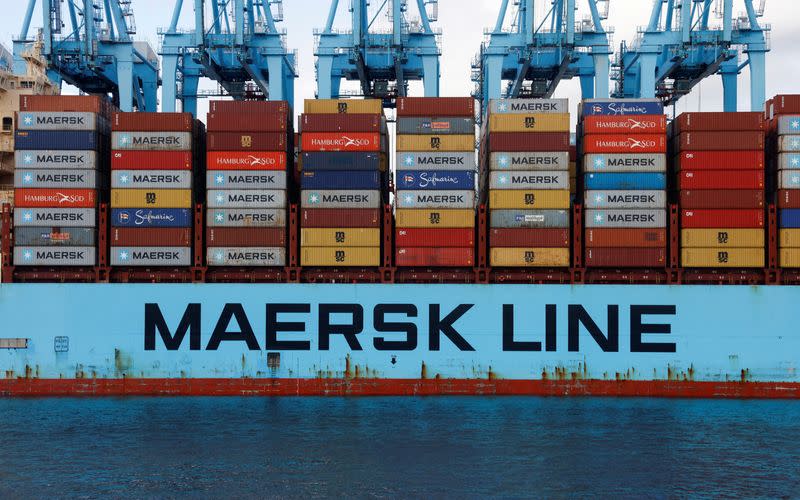Red Sea disruptions to continue into Q3, Maersk CEO says

COPENHAGEN (Reuters) - The coming months will be challenging for carriers and businesses, as disruptions to container shipping via the Red Sea continue into the third quarter, Danish shipping company Maersk said on Monday.
Maersk and other shipping companies have diverted vessels around Africa's Cape of Good Hope since December to avoid attacks by Iran-aligned Houthi militants in the Red Sea, with the longer voyage times pushing freight rates higher.
"The longer that this lasts, the more our costs will get deeply ingrained," Maersk said in a statement, citing comments made by CEO Vincent Clerc at "a recent online event with customers".
"We don't know yet exactly how much of these costs we will recover and for how long. The higher rates we are seeing right now are of a temporary nature," Clerc said.
Maersk expects to have missing positions or ships that differ in size from what the company would normally have on a given string, it said, adding that this would reduce the company's ability to carry the current demand.
(Reporting by Louise Breusch Rasmussen; Editing by Leslie Adler and Jonathan Oatis)

 Yahoo Finance
Yahoo Finance 